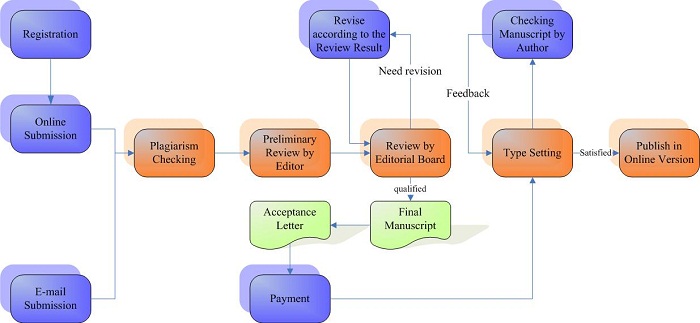World Journal of Educational Research (WJER) is an international, Refereed, double-blind peer-reviewed, open-access journal published by Scholink. The mission of WJER is to provide a high-level platform for experts and scholars all over the world to share their latest ideas in the field of education and foster the prosperity of the discipline. We would welcome scholars and researchers engaging in the related field to submit your manuscripts to WJER. Both of online submission and E-mail submission (wjer01@scholink.org or wjer@scholink.org) are acceptable. ------------------------------------------------------------------------------ The journal includes, but is not limited to the following fields:
Index/List/Archive
Refereed Journal: World Journal of Educational Research is a Refereed Journal. Open access: World Journal of Educational Research is available online to the reader "without financial, legal, or technical barriers other than those inseparable from gaining access to the internet itself." Peer review: World Journal of Educational Research takes peer review policy. Peer review is the evaluation of work by one or more people of similar competence to the producers of the work (peers). |
Journal Publishing Flowchart

Announcements
Call for Papers: Vol 13, No 1, February 2026 |
|
We are calling for submission of papers for Vol. 13, No. 1, February 2026 (Deadline: February 25, 2026). If you are interested in submitting a manuscript, please submit your manuscripts online or e-mail your paper to wjer01@scholink.org or wjer@scholink.org We also would like to cooperate with other institutions to publish special issues. To publish a special issue, please contact with the editor wjer01@scholink.org or wjer@scholink.org
If you are interested to be a reviewer, we welcome you to join us. Please Download the application formhttp://www.scholink.org/doc/Application%20Form%20for%20Editorial%20Board%20Members.doc, fill in your information and send it to the editor: wjer01@scholink.org or wjer@scholink.org Please pay attention to the basic requirement to editorial members: 1. Possess a doctorial degree. 2. Research area is relative to the subject of journal. 3. Proficiency in English. |
|
| Posted: 2016-09-19 | |
| More Announcements... |
Vol 13, No 1 (2026)
Table of Contents
Articles
|
Tingting Nie, Xiaojun Zhang, Bingbing Guo
|
p1
|
|
Omar M. Banguih
|
p14
|
|
Zhong Han, Meiling Zhang, Tianhong Duan
|
p25
|
|
Nadzwa M. Jalmaani
|
p37
|
|
Sherly Cabang-Santosildes
|
p49
|
|
Lihua Liu
|
p61
|
|
Anying Dai
|
p69
|
|
Yang Liu
|
p78
|
|
Zhaoqing Ying
|
p91
|


